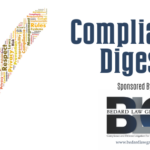A District Court judge in Utah has denied a defendant’s motion to dismiss in a Fair Debt Collection Practices Act case alleging it violated state law by suing to collect unpaid debts without having a license to collect.
A copy of the ruling in the case of Chamberlain v. Crown Asset Management can be accessed by clicking here.
The defendant hired a collection law firm to file lawsuits in Utah state court against a pair of individuals who owed unpaid debts. While the defendant was not licensed as a collection agency in Utah, the lawyers who filed the underlying collection lawsuits was licensed and registered as a debt collector. Neither of the plaintiffs in this case responded to the underlying collection lawsuits and default judgments were entered. Just as in another case with the same underlying facts — in which a judge granted the defendant’s motion to dismiss — this time the defendant was not as fortunate.
The defendant attempted to have this case reassigned to the judge who granted the motion to dismiss in the other case, but Judge Dale A. Kimball of the District Court for the District of Utah denied the motion, ruling he did not have the power to transfer the case.
As for the FDCPA claim, Judge Kimball noted that the “business of buying debt originated by someone else and then collecting on that debt” falls under the purview of the Utah Collection Agency Act, and that suing to collect on that debt if unregistered “is an action that cannot be legally taken in Utah.” Because the plaintiffs “have pleaded sufficient facts at this stage of litigation to plausibly support their allegation” that the defendant violated the UCAA, Judge Kimball denied the motion to dismiss the FDCPA claim.









